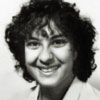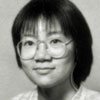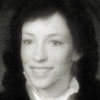They arrived at law school, many without any clear idea why. Oh, there was the allure of a high-paying, secure career. But law? What would they find in law, really? For the first few weeks, they discovered culture shock as they encountered an environment that was predominantly white and deeply alienating. Yet by graduation, they had found their own personal calling to the profession.

Nita Iyer |
As more visible minorities entered law school in the eighties, race began trumping gender as a leading issue. For women of colour, law school proved an "incredibly politicizing experience," says Nitya Iyer ('86), a specialist in human rights, pay equity and constitutional law. "Feminist issues were very much debated, but there was a huge silence and discomfort around race. You can't go through a year of law without realizing that whatever field of law you're looking at, different groups of people get advantaged or disadvantaged by it. My colour mattered in a way that it hadn't before."
Avvy Yao-Yao Go ('89), who became a founder and director of the Metro Toronto Chinese and South East Asian Legal Clinic, didn't really know why she applied to law school, other than, she says laughing, it was "a good way to make a lot of money."

Avvy Yao-Yao Go |
But she was dismayed, from the first day, when a professor told the incoming class that they were "the cream of the crop" and were going to be "the most powerful people in Canada." Says Go: "People around me were nodding their heads!" Instantly, she discovered an egalitarian streak and began hanging out with people who "didn't belong," students who weren't "someone's son or daughter."
Go, like Iyer, also began spending much of her time working at a downtown legal clinic in Chinatown. "Some Chinese students had no interest in the clinic because they didn't want to be ghettoized, but it was there that I found out what I wanted to do," says Go. "Courses were theoretical but here were real people with real legal problems and I thought, there is meaning in life. This is what I should be doing."
Race, complicated with gender, heated up student politics at the school. Iyer joined the fledgling Women in Law Caucus and anti-apartheid movement. The former raised hell by taking pictures of sexist graffiti in the men's washroom and plastering the pictures around the law school. For South African Ambassador Glenn Babb's visit to the University, Iyer joined an art protest that sparked a riot outside Hart House. Says Iyer: "I found law fascinating because I had never thought how class and race and sex actually organize and divide people. It was a very challenging, if not a happy time. But it changed my life."
Their struggle continues into their careers. Two recruiters at leading Toronto law firms say that firms are making little effort to increase diversity.
While her clinic gives her the platform to address issues important to the Chinese community, Go says racism is a constant - not only for her clients but for her as she advocates on their behalf. "People make comments about me or my name or my appearance - especially among the tribunals. Sometimes there's a total lack of respect and even disdain. You really have to wonder."

Darlene Johnston |
Darlene Johnston ('86), the first Indigenous woman to attend U of T law school, was dismayed by the lack of content pertaining to Indigenous peoples in courses and sought to correct it, by becoming a professor of law. She too found her political bearings outside law school, by working as lands research co-ordinator for the Chippewas of Nawash First Nation. Her advocacy led to protection of their commercial fishery, burial grounds and culturally significant sites. "There were times that involved confrontation," says Johnston, "and law school teaches the legitimacy of the status quo, to accept the status quo and be respectful. But from an Aboriginal perspective, there are lots of things that appear legal but have been imposed on First Nations."
"I also had to learn to make my legal skills relevant to the community, to not assume that the law or lawyers had all the answers but to be more sensitive to what the community was trying to accomplish then see how the law could help."
When Robert Prichard became dean in 1984, he ushered in more innovative curriculum changes, shoring up feminist, race, international and aboriginal content. Now, Johnston says U of T works hard to recruit aboriginal students, with about 10 enrolling each year. Says Johnston, who also serves as aboriginal faculty advisor: "Things are very much improved."



